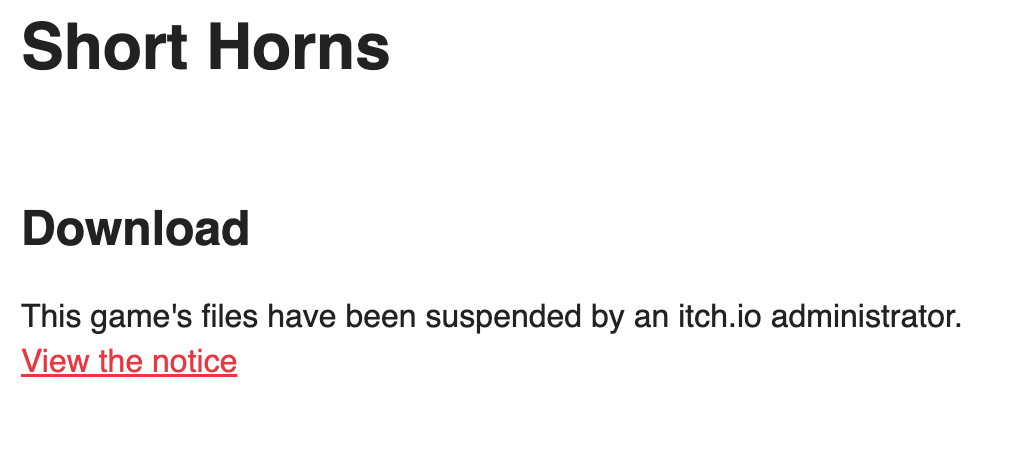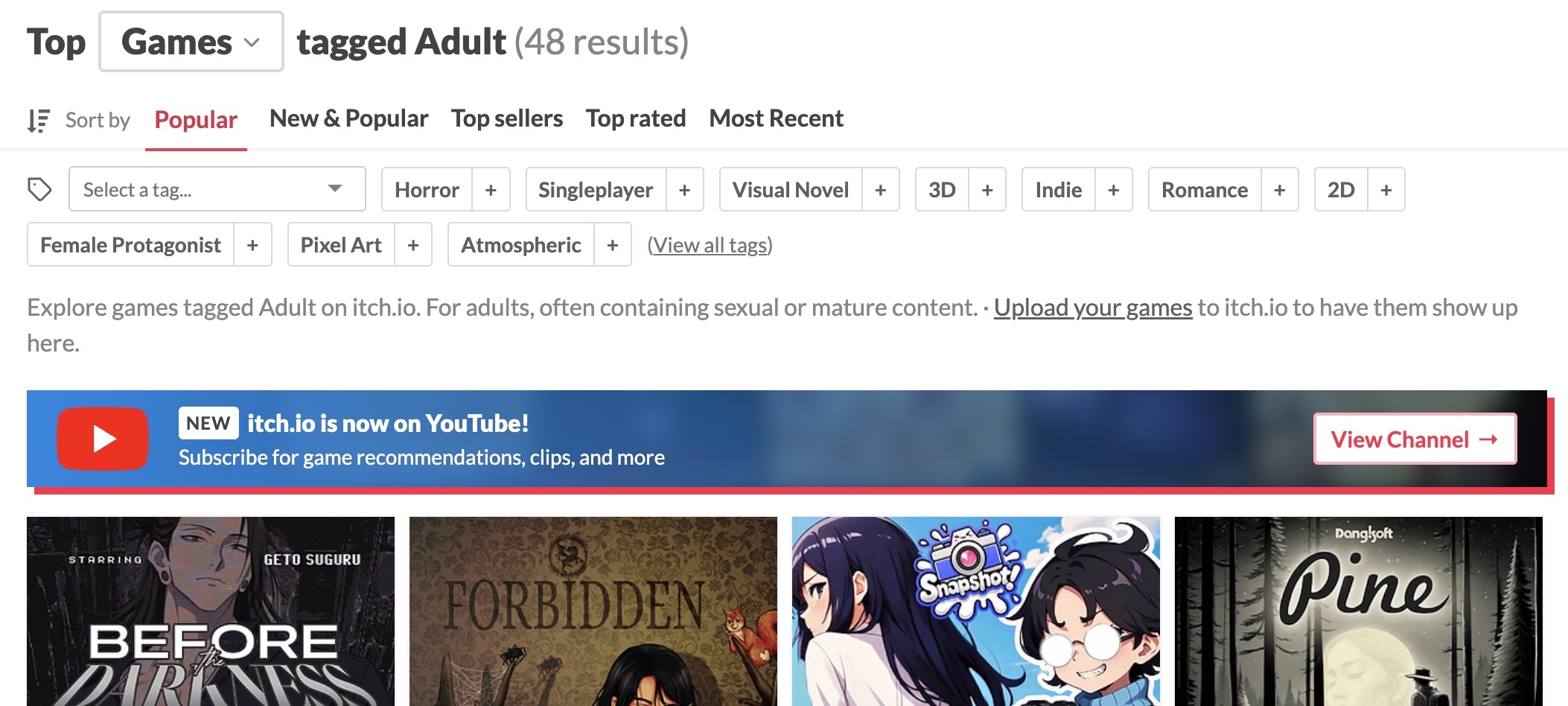Linked takedown notices on some of those pages outline the specific types of content that are being targeted in itch.io’s new crackdown:
We don’t allow hosting content that includes sexualized images or videos of real-life humans. Fictional, illustrated, and rendered content is generally fine, assuming it’s legal. AI-generated imagery that is designed to resemble photographic content of real people is not allowed. Content glorifying sexual violence is not permitted. Depictions of minors, minor-presenting, or suggested minors in a sexual context are not allowed and will result in account suspension.
Those notices also link to applicable “Acceptable Use Policies” from PayPal, Stripe, and Payoneer that itch.io says must be followed “if you plan to collect money for your content.”
On its creator FAQ page, itch.io adds that “it’s almost impossible to come up with an exhaustive list of unacceptable products to sell, so often we have to take content reviews one at a time.” The platform also notes that “violations that result in administrative action are permanent with no chance of appeal. Any funds on the account will not be eligible for payout. There is no second chance.”
What it means to be “deindexed”
As the audit continues, tens of thousands of adult games that are technically available on the platform (for now) exist in the limited visibility limbo of “deindexing.” While these games can still be accessed, purchased, and downloaded by those who follow a direct link to their itch.io pages, they will no longer appear in searches or individual user recommendations on the platform, vastly limiting their reach.
There were a lot more than 48 “adult” tagged games on itch.io until quite recently.
Credit:
Itch.io
That deindexing effect can be seen by simply browsing through many once-popular adult content tags on itch.io. Browsing the “Adult” tag that included nearly 17,000 games last week, for instance, now shows just 48 titles as of this writing (extremely NSFW links, obviously). Other itch.io tags that have seen their previously robust browsable content severely limited include “Erotic,” “Hentai,” “Incest,” “NSFW,” “Porn,” “Rape,” “Sex,” and “Sexy.”
It isn’t just sexualized games that have been caught up in this deindexing dragnet, though. Indie developer Robert Boyd notes on Bluesky that Consume Me—an award-winning game about eating disorders—will no longer show up in search results on itch.io, even if you seek it out by name directly (it can still be found using this direct URL or outside search engines like Google).
Source link


.jpg)
